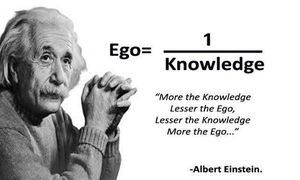Why clear communication with your doctor matters?
 We all are witnessing a more informative and reveling healthcare environment than it used to be in past. Thanks to the Internet. With a click of mouse you get loads of information more than you can chew.
We all are witnessing a more informative and reveling healthcare environment than it used to be in past. Thanks to the Internet. With a click of mouse you get loads of information more than you can chew.
The doctors are witnessing more challenges than ever before. Limited appointment time, edgy patients and their relatives, the ability of patients to do their own research, over competitive market, legal threats all of these makes doctors more cautious and alert. To add to the dilemma of both – doctor and patients is the ‘doctor shopping’ which means the practice of a patient requesting care from multiple physicians, often simultaneously, without making efforts to coordinate care or informing the physicians of the multiple caregivers. The doctor shopping can lead a patient to be misdiagnosed and mistreated as too many cooks spoil the broth.
Therefore, effective communications between patients and their physicians has become more important than ever. And, good and clear communications really boils down to two things; respect for each other and the ability to manage expectations.
Almost all Internet users spend time searching for health and medical information. According to Pew Internet which is project of Pew Research Center, a group that studies these kinds of trends, we don’t get a good response or reaction from all doctors when we try to share that information with them; we are often perturbed by the experience. Sometimes our doctors are curt or trivializing. Sometimes they even get angry. Even if they don’t say so in so many words, their body language says it all. It seems we’ve rubbed them the wrong way.
 It is very important to understand few key points about the clear communication with your doctors:
It is very important to understand few key points about the clear communication with your doctors:
Your doctor has limited time. It makes most sense for us patients to prepare ahead for the probability that the visit will be shorter than we expect.
Your doctor will be to the point in his communication. You need to be well-organized, prepare questions ahead of appointments, and sticks to the facts. With so little appointment time, you’ll want to be sure your doctor has all the important information about your problems, and has time to answer all your questions.
Ask your doctor what happens next. Before, during or after diagnosis or treatment, asking your doctor what happens next will help you understand what is going on at once, and what your outcomes might be. For example, if your doctor says he is sending you for a medical test, you might ask what he expects the results will be, or what the possible outcomes might be, and what they would mean. If he can manage your expectations, you will have more confidence about the process and its outcomes.
Be polite. If you feel your doctor is not listening and you are anxious, politely ask him/her to listen to your entire list of symptoms, or to let you ask your entire question. Sometimes a simple gesture such as gently holding up your doctor’s hand or a gentle tap on his shoulder will alert your doctor to stop and listen to you.
Good doctors understand that a sick or wounded patient is highly vulnerable. Therefore, being respectful towards the patient goes a long way toward helping the patient to understand symptoms, preparing him/her for decision-making, and complying with instructions.
I think a good doctor has to be a fine human first; a mature and skilled doctor has the ability to share information in terms patient can understand. They make their patients and their kin comfortable. They communicate in simple terms accompanied by an explanation at the same time. However, a doctor is stressed for time, he knows that if it can’t be done right to begin with, it will need to be done over. Listening carefully and respectfully to the patient will go a long way toward better outcomes for the patient.
 And, last but not the least a good doctor has the ability to effectively manage patients’ expectations.A lot of research literature on doctor-patient trust suggests that a patient’s health or recovery depends to a great extent on the doctor-patient relationship. Once the patient and physician are introduced to each other, they enter into a relationship which can go a long way. Both must respect one another. The relationship thus formed has substantial implications for how the curing and caring process will be accomplished and the extent to which needs and expectations will be met. And, a satisfied and healed patient acts as a brand ambassador for a doctor!!
And, last but not the least a good doctor has the ability to effectively manage patients’ expectations.A lot of research literature on doctor-patient trust suggests that a patient’s health or recovery depends to a great extent on the doctor-patient relationship. Once the patient and physician are introduced to each other, they enter into a relationship which can go a long way. Both must respect one another. The relationship thus formed has substantial implications for how the curing and caring process will be accomplished and the extent to which needs and expectations will be met. And, a satisfied and healed patient acts as a brand ambassador for a doctor!!












































